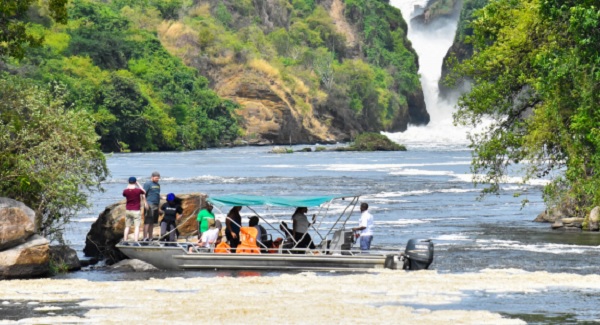
Per capita income increased to about US$930 for FY21/22, edging closer to the lower-middle-income threshold
Kampala, Uganda | JULIUS BUSINGE | Uganda’s economic activity is accelerating despite commodity-price inflation, global monetary tightening, international supply-chain bottlenecks, and a local Ebola outbreak, according to the World Bank’s 21st Edition of the Uganda Economic Update released on June.29.
The global bank says real GDP growth is estimated to reach 5.7 per cent in FY22/23, albeit still below the pre-COVID-19 projection of 6.5 per cent. The growth has been supported by a robust post-pandemic recovery in the services sector, bolstered by the rapid growth of ICTs.
Real estate and construction also performed well, while agriculture suffered from droughts in some regions and heavy rains in others, as well as rising input costs.
The recovery of income and employment bolstered demand, while private investment overcame tight domestic and global financial conditions to sustain increases in new exports and manufacturing orders into the third quarter of FY22/23.
As growth accelerated, Uganda’s per capita income increased to about US$930 for FY21/22, edging closer to the lower-middle-income threshold.
Focusing on the tourism sector this time round, the World Bank says there’s a need for an all-around intervention to grow a sector that currently earns attracts millions of tourists enabling the country to earn up to US$ 1.6 billion per annum.
The report themed “Leveraging Sustainable Tourism to Support Growth and Diversification,” says demand for tourism services is growing in the country and that firms must invest in safe vehicles, improve local infrastructure and environmentally friendly technologies.
The Bank also says funds allocated to community enterprises through the Uganda Wildlife Authority’s revenue-sharing model intended to support communities and minimize human-wildlife conflict are a step in the right direction to boost the sector’s growth.
More interventions needed
But the Bank says more needs to be done to accelerate the sector’s growth. For instance, it advocates for transparency on how revenues are shared and how the consultation and allocation process can be better aligned with the self-defined objectives of local communities.
In developing new policy frameworks for the sector and designing dedicated support programs, the Bank says, there’s a need to undertake deeper research and assessments targeted specifically at key identified enablers and reforms required for the sector to regain and improve its competitiveness.
Uganda’s value proposition
The Bank says while wildlife and nature will continue to be essential elements of Uganda’s value proposition for tourists, there is a strong need to diversify and broaden the bundle of tourism products on offer as tourist segments seek more authentic experiences and the interest levels in new product categories rises.
“It is here that Uganda is likely to be more competitive in the region where more advanced destinations like Kenya and Tanzania also prioritize nature-based tourism,” the Bank says adding that it is essential to maintain a consistent or increasing level of funding for a sector.
Currently, the government has allocated Shs 249 billion for promoting tourism sector in the next financial year which starts July 1, 2023.
The Bank also calls for not only the development of an integrated policy framework to clarify sectoral roles and responsibilities but also to increase the efficiency of government spending; establish a formal collaboration mechanism across all tourism agencies and departments to advance common objectives efficiently.
To streamline operations and ensure effective utilization of resources, the Bank calls on the government to review existing agencies as well as strengthen links between national and local authorities, especially district-level tourism officers.
The Bank also calls for more investment in regular data collection focused on developing consumer profiles, especially in the emerging tourism markets to inform policymaking.
It also calls for the government to review the effectiveness of hiring agencies abroad to assess their effectiveness. For instance, the Bank says considerable funds are spent to hire market-destination representatives, but it is unclear whether these representatives are meeting their targets or how these targets align with the challenges facing the country’s tourism sector.
The economic update also calls on players to adhere to the best practice principles for corporate governance by implementing transparent and robust selection criteria for board members of tourism agencies and ensuring private-sector representation.
“Board members should be appointed based on a mix of technical and strategic criteria…adequate accountability and transparency measures should be put in place to avoid conflicts of interest,” the Bank said, adding that there’s also a need to establish a Public-Private Dialogue to Strengthen Collaboration on Tourism Policy Development and Implementation besides setting up an independent secretariat to coordinate the suggested efforts.
The Bank also calls for the enhancement of existing tourism sites. For instance, the global bank says despite being recognized as Uganda’s first Tourism City in 2022, Fort Portal, positioned strategically near three national parks, numerous under-the-radar crater lakes, and significant Tooro Kingdom heritage sites, still lacks crucial amenities such as a marked heritage trail or a public map of key attractions.
With the emerging interest in arts and cultural tourism by key source markets like US, UK and Canada, the Bank says it essential to capitalize on this interest by developing new products to engage tourists according to the report.
The Bank says Uganda need to shift from the traditional marketing approach that focuses primarily on industry events to a more innovative approach such as new technologies and emerging travel-tech startups to grow the sector and contribute to the country’s economic growth.
 The Independent Uganda: You get the Truth we Pay the Price
The Independent Uganda: You get the Truth we Pay the Price





